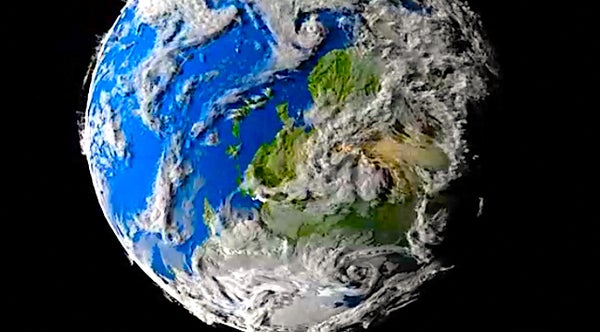This article was published in Scientific American’s former blog network and reflects the views of the author, not necessarily those of Scientific American
A potent idea in astrobiology is that by finding just one example of life with an independent origin from ours, we can estimate how often life occurs across the universe. In other words, we can constrain life's probability.
I've used this many a time to warm up an audience: Why do we do astrobiology? Here’s why.
Right now, with one data point (life started here on Earth) the constraints we have on life in the universe are largely a function of the assumptions we put into the calculation (a point made quantitative in a seminal paper by Spiegel & Turner in 2012). But finding just one example of an independent 'abiogenesis' event (even here on Earth, or in the solar system) would change things quite dramatically. That extra data point would immediately tell us that life happens a lot on a cosmic scale, and this is precisely why we want to explore our solar system and to gaze at distant exoplanets.
On supporting science journalism
If you're enjoying this article, consider supporting our award-winning journalism by subscribing. By purchasing a subscription you are helping to ensure the future of impactful stories about the discoveries and ideas shaping our world today.
That gives an idea of the potential impact of a discovery. You get to reveal that life on Earth is not unique, and you reveal critical information on how often life is going to crop up across the entire cosmos.
All of which makes good sense. Except there are some tricky details.
For example, constraining the probability of life occurring in a planet-scale or moon-scale environment doesn't necessarily tell you much about how long it might take for life to emerge, or how probable it is for life to emerge on a micro-scale. Let’s unpack those two items a bit.
How long does abiogenesis take?
We really have no idea. While it is increasingly clear that life started up pretty early in Earth’s history, that’s a relative and approximate statement. Early could mean a couple hundred million years after Earth’s surface cooled from being part of a magma ocean. Early could also mean a week or two after conditions were suitable – we just don’t know.
It’s possible that the very fact that no one has ‘created’ life in laboratory experiments on primordial chemical soups or ancient hydrothermal vent conditions is telling us that it takes a while. Although researchers have made great progress on revealing how complex molecules and complex chemical networks can emerge from simpler starter ingredients, the whole story is still a mystery. It’s not hard to imagine that in the natural world it could take millions of years of restless, mindless chemical experimentation – perhaps combined with proto-Darwinian selection processes – before anything interesting happens.
What’s the difference between life’s probability on a planet versus on a micro-scale?
How a living system emerges (despite uncertainty over when we can call a system ‘alive’ versus ‘not-alive’) is ultimately all down to mechanics. Atoms and molecules have to end up doing the right things. Maybe these actions take place temporally and spatially contemporaneously or perhaps some of them are spread out across time and place, or some mix of both. So, the question is whether the probability of life eventually occurring on a planet is just the sum of the tiny success probabilities of lots and lots of little chemical experiments (every pond, every hydrothermal pore, and so on) or whether it’s a much more complicated global probability. In the latter case, there’s something about the many interleaved cycles, feedbacks, chemistries, and gyrations of a planetary environment that are necessary to give life a chance at starting.
To put this another way: at the two extremes, does it actually take an entire planet to make life, or does it simply take an environment of the scale of a planet to ensure eventual success?
Of course, it may well be that it's both of these things.
And that takes us right back to the beginning. It sure would be helpful to find that other example of life that started up independently.
